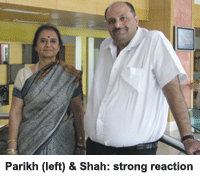 A higher education enterprise of great pith and moment has got into its stride on the Baner-Balewadi Road on the outskirts of Pune, Maharashtra’s second largest industrial city (pop. 5 million). Since the Found-ation for Liberal And Management Education (FLAME) Academy admitted its first batch of 108 postgraduate students into its two-year business management study programme in 2007, this institution, set within an eco-friendly, state-of-the-art 75-acre campus amidst undulating hills and green countryside, has rapidly added the FLAME schools of liberal education, communication, and performing arts to its pioneer business school. Currently the four schools which offer wholly residential two-to-five year programmes, boast an aggregate enrolment of 240 students instructed by a 45-strong residential faculty, supplemented by a galaxy of 80 visiting lecturers.
A higher education enterprise of great pith and moment has got into its stride on the Baner-Balewadi Road on the outskirts of Pune, Maharashtra’s second largest industrial city (pop. 5 million). Since the Found-ation for Liberal And Management Education (FLAME) Academy admitted its first batch of 108 postgraduate students into its two-year business management study programme in 2007, this institution, set within an eco-friendly, state-of-the-art 75-acre campus amidst undulating hills and green countryside, has rapidly added the FLAME schools of liberal education, communication, and performing arts to its pioneer business school. Currently the four schools which offer wholly residential two-to-five year programmes, boast an aggregate enrolment of 240 students instructed by a 45-strong residential faculty, supplemented by a galaxy of 80 visiting lecturers.
Constituted in 2004 by (unrelated) visionaries Nemish Shah (promoter-chairman of the Mumbai-based merchant banking firm Enam Financial Consul-tants) and Pune-based serial entre-preneur Parag Shah (promoter of Snap Marketing Pvt. Ltd (vending machines) and Oxford Realty which has developed 40 million sq.ft of commercial and residential real estate in Pune), the FLAME Foundation is a not-for-profit philanthropic trust born out of the founder-trustees’ “strong reaction against the rigidity, aridity and empty formalism of a syllabus bound educational system”.
“The distinguishing feature of the curriculums of all FLAME schools — business, communication and performing arts apart from the school of liberal education — is that they are heavily infused with liberal arts content. After studying the world’s most respected academic institutions and meeting with their leaders, academics, and students, I became aware that education for the future requires inter-disciplinary knowledge rather than mere specialisation. The objective of our insistence upon the study of liberal arts is to graduate happy, well-rounded, well-groomed and responsible global citizens,” says Parag Shah, founder chairman of the FLAME Foundation and its path-breaking schools. Thus far the foundation has invested Rs.104 crore of its Rs.110 crore corpus in developing the FLAME campus, which offers an 18-hole golf course, an equestrian sports in-house stable, two floodlit tennis courts, world-class football field, and swimming pool among a plethora of extra-curricular facilities.
“The differentiating characteristic of FLAME is the liberal arts supple-mentary education offered by all our schools and study programmes. Students have a wide choice of subjects — from theatre to physics, finance to dance — they can specialise in. Moreover, teacher-student interaction is integral to our curriculums and every student has a counselor and mentor to guide her through her chosen study programmes. Since all our programmes are full-time and residential, learning happens inside and outside our classrooms,” says Dr. Indira Parikh. A graduate of INSEAD (Paris) and Rochester University (USA) which awarded her a Ph D in psycho-logy, and who served as faculty with IIM-Ahmedabad for over a quarter century, Parikh signed up with the foundation in 2006 and is currently the head of academics and chief executive of the FLAME Academy and its four schools.
India Inc has responded enthu-siastically to the FLAME Foundation and its academies. Thus far the pioneer business school has graduated two batches of 108 and 87 students. Despite adverse recessionary conditions, all of them were snapped up by blue-chip corporates including Reliance ADAG, National Stock Exchange, HDFC Bank, among others, at average start-up remuneration packages of Rs.4.6 lakh per year. Ditto graduates of its other schools. “The FLAME academies are attempting a renaissance of professional education in India, and have got off to a good start. I am confident that we are moving in the right direction,” says Parikh.
Wind beneath your wings!
Dilip Thakore (Bangalore)